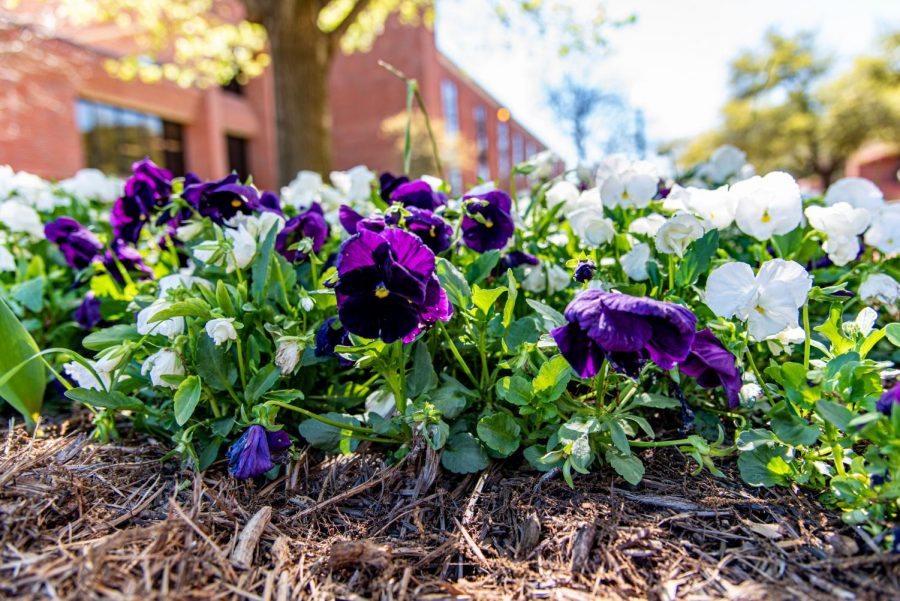Trapped? At least you can still garden
Purple and white flowers outside of the Barry B. Thompson Student Center
Gardening is something that often seems intimidating. Raising, nurturing and ultimately keeping plants alive is something that many find particularly difficult.
Moving your garden into an apartment or residential hall brings more challenges. However, you should not be deterred. Apartment gardening is something that is much easier than expected and can be extremely beneficial for your mental health.
When gardening in a smaller place, the most important thing to do is to choose the perfect plant for the space you have. Although many plants require a decent amount of direct sunlight each day there are still plenty of plants that will do well in your shaded apartment or dorm.
If you can’t provide much direct sunlight, choose a plant that does well in the shade. A good example of this type of plant would be a peace lily. This plant is a vibrant green leafy plant that typically blooms beautiful white flowers in the late spring and summer. Peace lilies have also been called closet plants due to their ability to grow in areas with no direct sunlight. Aside from the peace lily there are also an abundance of other house plants that do well in the shade such as: spider plant, dumb cane or bamboo.
Succulents are another go to easy plant. They do best on a window sill or under a desk lamp but still do well in dimly lit areas as long as you pay attention to its condition and water it when it looks parched. The most commonly known succulent is your average cactus but there are so many more to choose from.
Aloe Vera is a great beginner plant for someone who wants to utilize their garden for medicinal purposes. The gel of the Aloe Vera plant is known to reduce skin irritation and inflammation.
Echeveria is another fun succulent. When it’s lived for longer periods of time this succulent can produce babies that can be planted into a new pot.
Most herbs also do well with minimal sunlight. They may not be as vibrant in color in the shade but they still hold their strong flavor. Mint, parsley and basil do exceptionally well indoors, especially if you place them by a window.
If you like to cook, it’s said that freshly grown herbs provide the most flavor for dishes. Herbs can also provide aromatherapy which has been proven to relieve stress and clear the mind. With herbs it is important to plant them in pots that have either a good drainage system or plenty of room for the roots to grow.
Aside from these plants’ visual appeal they also have a long list of benefits regarding your well being. Having house plants is known to improve memory retention and concentration, which is something that could be useful for the average college student. Studies have also shown that people who garden and spend more time in nature tend to have a more positive outlook on life. They also help improve relationships, with scientists saying people who spend more time with plants have healthier relationships. Plants also purify the air by absorbing pollutants through their leaves and roots.
To establish an understanding of your gardening abilities, start out with one plant so you can begin to map out what you’re comfortable with.
This might include: how much time you can spend taking care of your plant, where in your apartment or dorm is best suitable for your plant and which plant is right for you.
Don’t be discouraged if your first plant doesn’t survive. Gardening is trial and error. When you mess up you have to figure out what caused that mess up in the first place and fix it for your future plants. Gardening for college students can significantly improve your learning environment and help your long-term success. So get your hands dirty and have fun.




